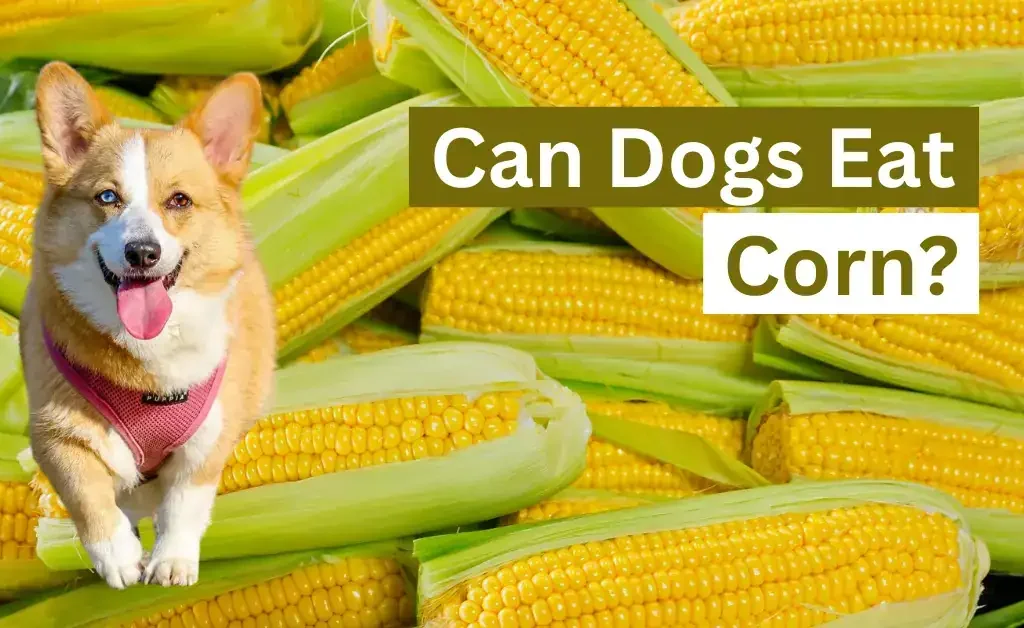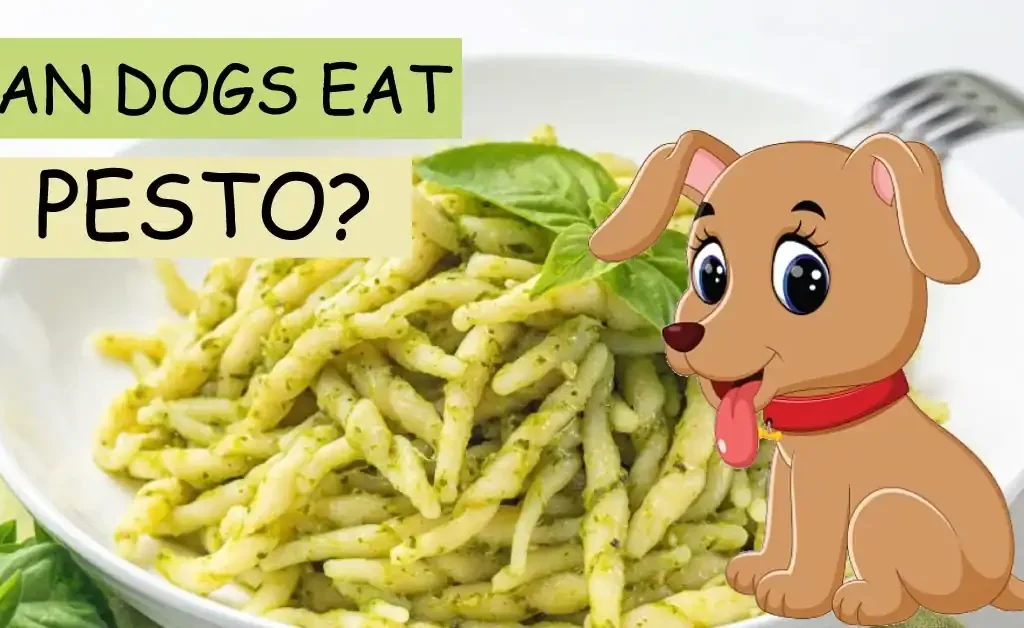Corn is frequently added to our dishes to enhance overall nutrition. But can dogs eat corn? How can they benefit from corn? As pet parents, we often observe our pets grabbing the table scraps, whether cucumbers, meaty chunks, leftover bones, or corn.
Corn is not hazardous to our pets’ health. It offers valuable health perks. However, you must be aware of some potential risks of giving corn to dogs. We have covered all types, benefits, health dangers, feeding methods, and alternatives to provide you with enhanced information regarding dog corn treats.
Can Dogs Enjoy Corn?
Yes. Dogs can safely consume corn to improve their nutrition. Moderation is crucial when adding human food to your pet’s plate. Can dogs eat cooked corn? Both raw and cooked corn are beneficial for canines. Moreover, you can offer some frozen corn treats to add crunchy excitement to their eating time.
While feeding dogs corn, you must always be present to see if they choke. Stop feeding corn and offer them plenty of water for any unusual behavior. Corn is not ok for dogs with kidney disease and related gut issues.
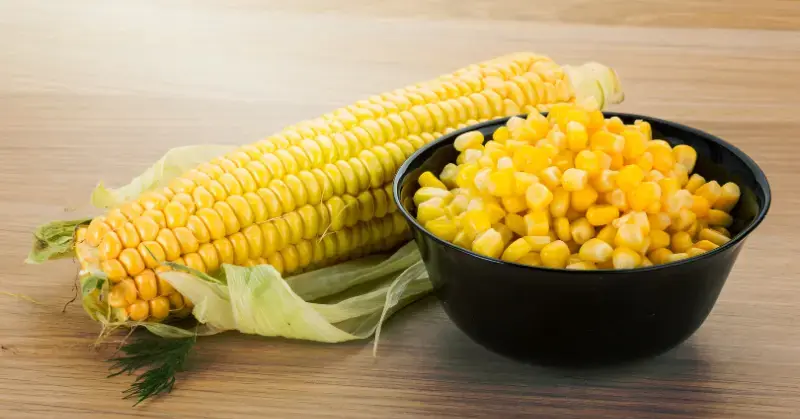
Read more: Can Dogs Eat Lobster?
Remember, before incorporating corn treats into your pet’s eating routine, consulting a vet is essential. They can guide you based on your pet’s underlying health conditions, thus maintaining their overall nutrition.
Types of Corn
Corn is one of the most used crops in Southwest America and surrounding regions. It is also used in various culinary dishes. Let’s explore the wide range of corn types available worldwide.
1. Popcorn
It is the most ancient type of corn with kernels similar to flint corn. It is hard but brittle. The popcorn kernel has moisture inside, which, upon heating, turns into steam and develops a high pressure.
This pressure helps the kernel explode, resulting in white, delicious popcorn. The popcorn’s white color comes from its endosperm, which is wholly starch. The middle-colored region is the pericarp, from which the kernel arises. Can dogs eat pop corn? The air-popped varieties are safe for them in small amounts.
2. Flint Corn
It’s famous due to its hard outer covering, which protects its soft kernel and endosperm inside. Thus, it is called as hard as flint. Flint corn can not pop up like popcorn, yet its kernel breaks into two pieces. Flint corn’s hardness allows it to store well for a longer period, preventing it from insect or rodent deformations.
It is low in sugar, making it a perfect choice for diabetic patients. It is frequently used to make masa tortillas. It is known for its starchy and gummy texture in culinary treats.
3. Flour Corn
Flour corn is the softest type and is easily ground into a finer corn treat. It is delicate corn without dense oils and proteins, and it is less rich in taste than other corn varieties.
Flour corn is available in different colors, limited to the outer covering. The inner starch is white, like all. Among people, it is the most used cornmeal due to its tender properties.
4. Sweet Corn
It is another tender and juicy type of corn. It is also loved in its mile stage due to its softness. The milky stage’s name comes from the milk released from its kernel when pressed. It results from genetic mutations where sugar is not converted into starch.
Thus, we observe sweet corn’s wrinkle-mature, dry phase when its sugar dehydrates. Pet owners wonder, can dogs eat sweet corn? They can have some sweet corn with their owners as an occasional treat.
Is Corn Good for Dog’s Health?
Research on feeding pets has consistently shown that corn is safe and beneficial for your furry friend in moderation. It is an easily digestible source of energy, often a preferred choice for pet owners after rice. Corn, a globally popular food, offers several essential benefits for your pet’s health, some of which are detailed below.
1. Carbohydrates
Can dogs eat corn starch? Corn starch is an excellent energy source for dogs because it contains easily digestible carbohydrates. These carbohydrates break down into glucose, which the body requires to perform mechanical functions and provide energy for daily activities.
The energy levels must be different, or it can be easily understood that the amount of energy needed for running and playing differs. Hence, it is vital for maintaining well-being, a healthy routine, and a healthy lifestyle.
2. Amino Acids & Protein
Corn is rich in plant proteins and amino acids. Protein is the basic building block for a healthy lifestyle for humans and animals. It helps maintain skin health, hair growth, and muscles. Amino acids are protein components, ensuring your pet is always healthy and has a solid and active metabolism system.
You must consider what happens when maintaining these vital functions. Protein provides immense support for the immune system, aids in repairing tissues, and produces enzymes and hormonal changes.
3. Essential Vitamins and Beta- Carotene
Feeding corn to your furry friend may enhance their vision and body metabolism. Corn is a rich source of beta-carotene, a precursor of Vitamin A. This vitamin helps improve the sight of dogs.
Vitamin E acts as an antioxidant that aids your furry friend in protecting cells from damage caused by oxidative reactions. Thus, it supports the immune system and provides healthy skin and coat. These antioxidants reduce your pet’s inflammation to maximum limits, enhancing its health and longevity.
4. Omega-6 Fatty Acids
Every nutrient is not synthesized in the body, so we must add them to dietary regimens. Omega-6 fatty acid is one of those essential nutrients that can’t be synthesized independently.
Feeding corn to your pet can help with this. Corn has omega-6 fatty acids, which provide the integrity of cell membranes and give your pet vital support in reproductive growth. It also ensures the skin and coat shine and keeps them supple and healthy.
5. Dietary Fiber
Having any issues in the gut or GI tract can lead to harmful diseases that can be life-threatening if not treated in time or acknowledged. Dietary fiber is a crucial source of support for gut and motility functions. Corn is the best source of dietary fiber, helping your furry friend’s gut health and motility.
Good motility helps digestion, which reduces the chance of constipation and regulates bowel movements. Some bacteria are beneficial for your health and are present in specific areas, so dietary fiber supports the bacteria in the gut.

Can dogs eat corn nuts? They are not hazardous for dogs to eat, as these fried corn nuts are rich in sodium, which can lead to salt poisoning when given in high amounts. Moreover, the crunchiness of corn nuts poses choking risks in dogs that could be fatal if left untreated.
Can Dogs Face Health-Related Issues with Corns?
Everyone wants their pets to have a better and healthier lifestyle, and sometimes, what we think are better options for our furry friends can turn out to be harmful substances. Every dog’s physiology depends on breed, age, or nutritional necessities.
Corn is found in recipes for many dog foods and can harm their health. Following are some of the risk factors that are mentioned below,
1. Gastrointestinal Issues
Corn can have severe effects if your dog is not accustomed to it. If your dog has a sensitive stomach, he may experience diarrhea, stomach upset, nausea, irregular bowel movements, or vomiting. Always start a new diet plan with small portions under your vet consultation.
Can dogs eat corned beef hash? It is toxic to dogs due to the presence of sodium nitrate. Corned beef hash can cause dehydration, kidney problems, vomiting, diarrhea, or, in severe cases, death of dogs.
2. Allergies
Some pets may have an allergy to corn, which can cause severe health consequences. Corn allergies may lead to skin irritations, hives, itchiness, infections of the ear, and other health problems.
Can dogs eat candy corn? A few pieces will not harm them, but high amounts can cause life-threatening conditions. It is due to the presence of xylitol, an artificial flavor. Dogs may develop xylitol toxicities, leading to severe health consequences.
3. Inadequate Amount of Nutrition
Corn should not be considered the main food for your canine companion as it can lead to several health issues. Only providing corn can lead to multiple nutritional deficiencies in your dog, restricting the proper functioning of the body organs.
4. Obesity
Obesity is the leading cause of destructive health concerns in humans and dogs, and corn is a diet with a high amount of calories. Due to the high calories in corn, weight gain and obesity can occur in your furry friends. They may also develop diabetes if not controlled in time.
5. Dental Issues
While eating corn, your pet may have issues with teeth. Corn kernels can get stuck in their teeth, causing irritation and dental problems. It can lead to worse conditions, dental caries in dogs, and eventually tooth loss.

Also read: Potential Health Risks of Feeding Ritz Crackers to Your Dog
Can dogs eat corn flakes? They can enjoy corn flakes in moderation. No health danger is associated with corn flakes to dogs if given adequately under the vet’s guidance.
Can Dogs Eat Canned Corns?
Canned corn can be hazardous to our pets’ health. It may contain high sodium levels, contributing to the electrolyte imbalance in dogs. Thus, dogs are susceptible to developing kidney problems with canned corn.
High levels of sodium can also lead to salt poisoning in dogs. The symptoms include vomiting, diarrhea, loss of appetite, decline in nervous coordination, lethargy, tremors, seizures, increased thirst, and urination. In severe cases, dogs may go into coma and even death.
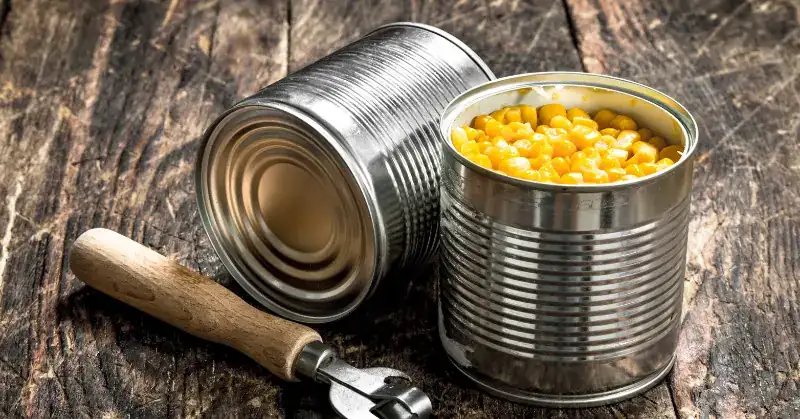
If your vet accidentally ingests canned food varieties like corn and experiences the symptoms mentioned above, you must consult your vet quickly. Avoiding canned corn is best to ensure your dog’s overall health.
How Do I Safely Add Corn to My Dog’s Diet?
Corn kernels are safe for dogs only in moderation. Overconsumption can lead to several health consequences, as discussed above. Can dogs eat frozen corn? Vets suggested feeding fresh or frozen whole corn kernels to meet your dog’s nutritional demands. Canned corn treats are highly risky food canines.
Canned corn varieties are rich in sodium, which can cause electrolyte imbalance and reverse the nutritional outcome of corn in dogs. Many breeds can show allergies when given canned corn kernels. However, such allergies are not common in dogs but could happen.
It is best to consult your vet before selecting new food varieties for your beloved pets. Vets are educated in pet nutrition and can better guide you regarding their eating plans. Seeking a vet’s consultation can protect your dog from hazardous food consequences, ensuring their health.
When Should I Visit the Vet?
Can dog eat corn? Apparently, corn treats are safe for dogs when given in limited quantities. Excessive feeding can prompt health issues. You must be present to seek their outcomes when you feed new foods. If your pet has ingested corn cobs, he has a tendency to show symptoms, including sluggishness, stomach pain, vomiting, loose motions, and decreased appetite.
It is an indication to visit your vet immediately. Moreover, corn can lead to severe intestinal blockage in dogs, which could turn into a life-threatening situation. Rush to vets to get first aid treatment and save your canine buddy.
Can Dogs Eat Corn Muffins or Cornbread?
Can dogs eat corn bread? Due to various health risks, dogs can not have corn muffins and cornbread. The ingredients that go into making such foods include butter, salt, and high sugar content, making them unsuitable for dogs’ diets.
They can have your leftover corn muffins or cornbread safely without health risks. However, giving them these treats in high amounts can pose various health dangers to dogs. It is essential to seek a vet’s guidance before adding any new treat to your pet companion to ensure their well-being.
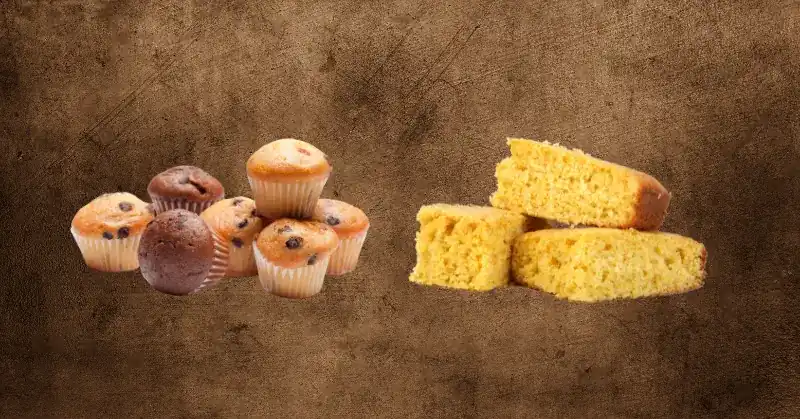
Can Dogs Eat Corn Cobs or Husks?
Corn on the cob is not suggested for dogs. They are difficult to digest in their stomach. Even the ingestion of a small amount of corn cob can cause intestinal blockage and severe painful symptoms. It is because of its absorbing nature.
Corn cob is highly absorbent and can swell in intestinal fluid, causing our canine friends uneasiness and pain. Large dogs can manage to digest small pieces of this treat, but it is too risky for young ones.
Symptoms of ingesting corn cobs include vomiting, constipation, stomach ache, painful bowel movement, decreased appetite, or diarrhea. If left untreated, this GI blockage can lead to fatal conditions in dogs. Rushing to the vet is essential if you notice any choking symptoms in your pet.
Can dogs eat corned beef? Never let your dog eat corned beef from your table. Due to its high saltiness, cooked corn meat is strictly prohibited as dog food. It is worse than bacon for dogs.
What Grains Are Beneficial for Dogs?
Other than corn, we have numerous healthy and safe grain options for dogs. They can be a source of complete nutrition for your pet. Yet, you have to consider whole-grain options rather than highly processed ones. Let us give you some dog-friendly grain options.
1. Whole Wheat
Wheat is frequently added as a base ingredient in many marketed dog foods. It is one of the safest foods for our canine friends. Yet, it has gluten, which may cause allergies to some breeds. Domestic dogs find no difficulty digesting wheat.
It is rich in digestible carbohydrates, an essential energy source for our pups. Whole wheat has grain kernels, which are rich in fiber. Feeding fiber is similar to adding prebiotics to your dog’s gut, promoting healthy microflora growth in the digestive system.

2. Brown Rice
This grain is abundant in vitamins and minerals. Brown rice holds its outer kernel layers, unlike white ones. This kernel contains valuable fiber and nutrient content that is beneficial for dogs. Moreover, it is a good source of carbohydrates and vitamin B. Thus, it is critical in regulating energy production and enzyme activity.
Brown rice offers a good amount of minerals like magnesium, selenium, phosphorus, and vitamin E. This diet helps treat dogs with upset stomachs and irregular bowel movement problems.
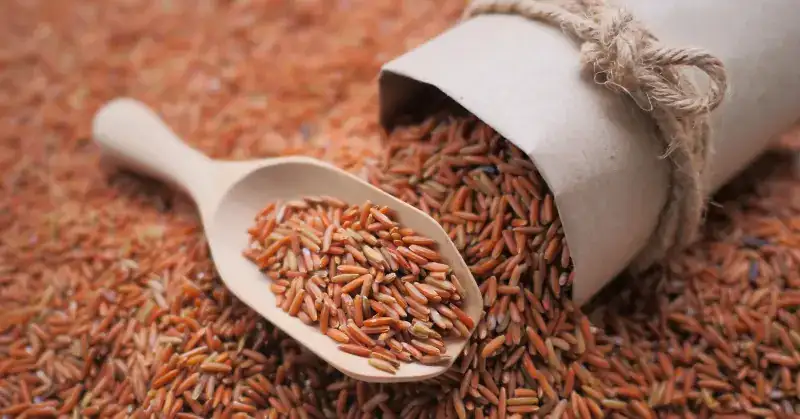
3. Barley
Barley is another of the safest cereal grains for our furry friends. Its high carbohydrate content contributes to dogs’ primary energy source. However, overfeeding carbs can lead to obesity and diabetes in canines.
Barley is also rich in vitamin B and essential nutrients, promoting the overall health of our canine partners. Many dog food brands use pearled barley, a processed barley without shells. It is labeled as barley groats, a vet-recommended form of this grain for dogs.
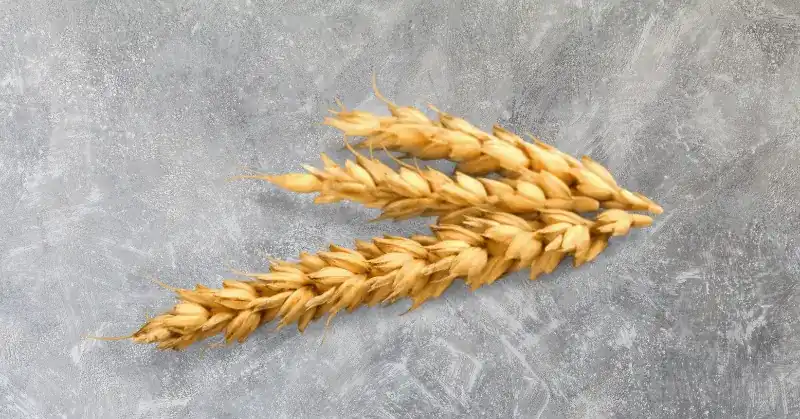
4. Oats
Adding oats to your pets’ diet is like adding a bucket of nutrition. They are rich in protein and a gluten-free diet for dogs. Thus, they can not cause allergies to any breed. Moreover, they are safe for dogs with sensitivities to corn, wheat, or other cereals.
Dogs can easily digest this plant protein, and its low glycemic index regulates blood sugar and cholesterol in our canine buddies. It is labeled as oatmeal, a premium dog food made with whole oats.
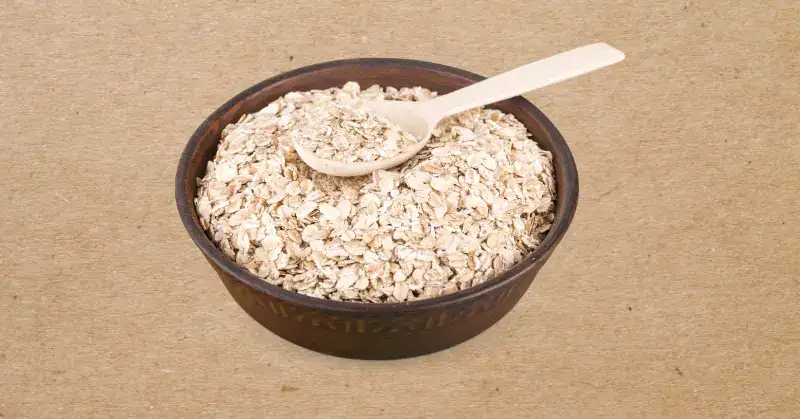
Can dogs eat mixed vegetables with corn? Dogs can enjoy all types of vegetables, including peas, broccoli, and spinach, in moderate amounts with corn. You can opt for these grains, which are safe alternatives to corn for dogs. However, seeking expert advice is essential to ensure your pet’s overall health.
Final Thoughts
Can dogs eat corn? Corn is not toxic to dogs and is safe in moderation. Providing fresh or cooked corn is more beneficial. You can give corn kernels as an occasional treat to dogs. Consulting a vet is essential when deciding on dog food plans. For more detailed information, check out this blog.
Frequently Asked Questions (FAQs)
Q: Can dogs eat corn chips?
A: These varieties are rich in salt, additives, seasonings, or preservatives, making them unhealthy for our furry friends.
Q: Can dogs eat corn dogs?
A: The crispiness and intense seasonings in corn dogs can pose health risks to our canine friends. They may experience obstruction in their gastrointestinal tract, leading to severe problems in the future.
Q: Can dogs eat caramel corn?
A: Caramel corn is not an ideal food for dogs. It contains many health dangers, chiefly due to the presence of xylitol, an artificial sweetener. It is highly toxic to dogs and may lead to fatal conditions.

